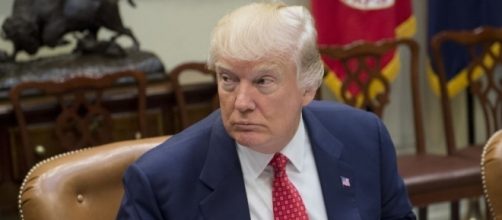Jan. 27, Donald Trump issued his first executive order: his now infamous travel ban. It was met with immediate pushback. This travel ban prompted protests at airports around the country and resulted in the detentions of hundreds of travelers. Several federal district judges issued orders blocking aspects of the executive order.
Fast forward to March 6, when Trump issued a revised ban. This one banned travelers from Iran, Syria, Yemen, Somalia, Libya and Sudan. Bans against Iraq and current visa and green card holders were struck from the revised order.
Even after the changes Trump made, his executive order still faced heavy opposition.
The ruling
May 25, the United States Court of Appeals for the Fourth Circuit, in Richmond, Va., refused to reinstate the revised travel ban. The court issued a statement saying the ban “drips with religious intolerance, animus, and discrimination.” The vote was 10 to 3, divided among party lines with the three Republicans in dissent.
Speaking for the majority, Judge Roger Gregory, the chief judge of the circuit, wrote, “Trump’s campaign statements reveal that on numerous occasions, he expressed anti-Muslim sentiment, as well as his intent… to ban Muslims from the United States.” The Judge’s statement lines up with the view that the executive order had less to do with keeping the country safe and more to do with Trump keeping his anti-Muslim promises.
Omar Jadwat, director of the ACLU’s Immigrants’ Rights Project, wholeheartedly agreed with the court’s ruling. He said that the ban violates the Constitution and stated that “we can all be glad” that the Constitution prohibits “actions disfavoring or condemning any religion”.
Voices of dissent
Judge Paul Niemeyer wrote a statement from the minority perspective, stating that by barring the enactment of the travel ban, millions of Americans’ safety is put at risk.
Niemeyer had an issue with how the majority took statements made by Trump while he was campaigning to support their decision. He wrote, “Unless corrected by the Supreme Court, the majority’s new approach, which is unsupported by any Supreme Court case, will become a sword for plaintiffs to challenge facially neutral government actions, particularly those affecting regions dominated by a single religion.”
The White House obviously disagreed with the ruling.
Spokesman Michael Short said, “These are very dangerous times, and we need every available tool at our disposal to prevent terrorists from entering the United States… We are confident the President’s executive order to protect the country is fully lawful and ultimately will be upheld by the Judiciary.
“The Department of Justice will continue to vigorously defend the power and duty of the Executive Branch to protect the people of this country from danger, and will seek review of this case in the United State Supreme Court,” Attorney Jeff Sessions said in a statement, confirming that the White House intends to appeal to the Supreme Court.
The travel ban is currently being examined in a second appeals court, the United States Court of Appeals for the Ninth Circuit, in San Francisco, CA. The court is expected to deliver its ruling shortly.


